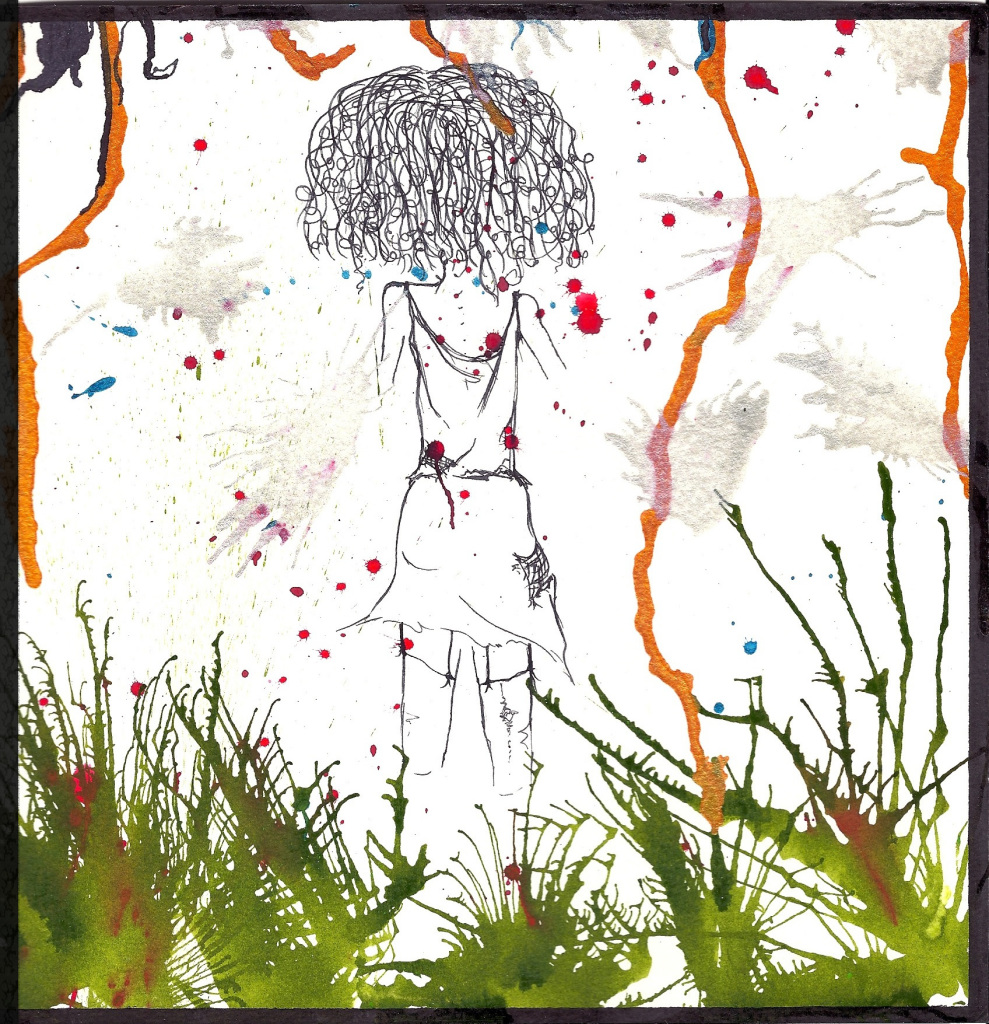
In this era of #MeToo it’s hard not to talk about consent, negotiation, and coercive behaviors as we address the idea of a healthy sexuality and what sexual behaviors we’d like to cultivate moving forward. Alongside these discussions it’s natural to wonder, recount, or perhaps even worry whether you yourself have leaned on past lovers in ways which felt sexually coercive. Chances are the vast majority of us (especially of a certain age) have at some point along our sexual journey engaged in sexual negotiation using conscious or unconscious forms of coercion to get what we wanted.
For many women (cis, trans, NB) and others it may feel as though our entire experience of sexuality has existed within the confines of coercion as a present or expected element effecting our negotiations and exploration. Certainly it’s easy to feel this way even in non-sexual spaces daily—constant judgment and commenting from people who profit off the male gaze, a society rife with patriarchally-fueled marginalization which undermines livelihood for many, and a persistent pressure from the media to mirror inauthentic standards of behavior, dress, and presentation in exchange for safety (physical autonomy, social mobility, and provision of basic needs). In situations where males, men, more privileged people, hierarchical partnerships, or D/s dynamics are present in the negotiation room, these stressors are naturally present, even if below the conscious surface.
There are too many sexual assault and abuse survivors in our world, and the consequences of this treatment can be deeply rooted in one’s mind, emotions, and body. Sexual negotiation is not a thing everyone has equal access to as a direct or easy conversation. After experiencing sexuality through the lens of a coercion (especially consistently or violently), it can be hard to approach negotiation outside the confines of expecting coercion: survival mode. There are many people who want to process their histories of coercion (received or acted on) in order to move beyond, to heal, and to enjoy power imbalances safely and consensually. How do people regain control of their narratives and come together in healthy ways?
Consider that being a pushover plays into unhealthy exchange, and can be coercive in its own sense. We must take responsibility for the things we want, what we enjoy, what we desire, and our boundaries. Even if it’s hard to articulate these things (it often is), it’s important to rise to the occasion for yourself and also for the health of your partners. For example: if I desire to be treated primally without overt consent in a sexual situation; if I desire to have my boundaries challenged as a way to enjoy or access sex in ways I feel unable to access it outside of those parameters; if I desire (for example) breeding or the threat of breeding in my scene—I must do the work to get over my shame and other repressive blocks (including trauma) concerning these desires, and I must ask for them as I want them to be done. Otherwise I risk feeding into and helping maintain dangerous community standards which play into ideas like “boys will be boys”, “she was dressed like she wanted it”, and “they didn’t say “no””. A silent push to trigger a partner’s aggression or instigate boundary pushing can certainly perpetuate unhealthy communication and risky behaviors in both myself and my partners.
Is it the sole responsibility of the person who desires coercion to speak up? No. As the bottom in that scene I may have a hard time saying, “I want you to tie me down and fuck me like an animal”, however it’s of utmost importance that the top in this dynamic is able to say, “I really want to ravage you right now, and I feel like you want that too, but I need to make sure you’re into it and that you’ll let me know when you’re overwhelmed or I’m getting near your limits” and, “I really want to come inside you but I need express permission to do that first”, or any other number of questions which acknowledge the edgy play at hand and the potential consequences of pushing forward without acknowledgement and agreement. With these words one must also be able to receive the answer vocally while also reading body language and any energetic reactions given in reply. It’s not enough just to say the words and listen for the answer you want to hear—or the absence of a negative. One must try to understand their partner as a whole person who may have a hard time articulating the word “no” but may still be saying it in other ways. If we care for one another’s well-beings, we must care that specifically.
Everyone has different limits, and those limits can change at the drop of a hat depending on a great number of factors. A good example of this is when my lizard brain and hormone monster are turned up and wanting. I know that I don’t have the same opinion of what’s acceptable as I do when I’m not turned on and not in a sexy headspace. My intelligent sex educator brain knows the ins and outs of risk factors, STI contraction possibilities, pregnancy risks, and emotional or mental health fallout possible from giving my body to someone to do what they wish without boundaries. When I’m in the altered headspace of amped up hormones and piqued sexual arousal I don’t make the best longterm decisions. I know this about myself. Add in substance use (even a little to relax) and my decision making is definitely impaired by my own sober values and standards. This is why I negotiate with people about sexual play before being in the midst of play itself, and I check in with people when I feel the need to during play. I negotiate before getting the juices flowing in order not to coerce others or to push past my own boundaries in unhealthy ways when I’m not thinking straight. This helps me enjoy the moments I get myself into more fully too—especially knowing I have a partner I trust will stop if I say the word or pull away.
One of the best tools I have at my disposal is this understanding of the disparity between turned on me and “rational” me. When I negotiate a kink scene with someone (sexual or nonsexual) I mention this fact as a negotiation point, “when I’m really turned on I want things that I won’t be happy about afterward if they come to pass. I’ll take responsibility for my “yes” in the moment if I give you one, but I will feel taken advantage of afterward if that’s the situation I’m confronted with by you. Don’t do that”. This means that if we negotiate “no sex”, “no oral/anal”, “no marks”, or anything else right now, OR if the desire to try something mid-scene which we haven’t talked about feels like a good idea, that we agree not to engage in that behavior. Period. If we realize we have great sexual chemistry, or that thing we didn’t negotiate seemed really sexy during play, we can always renegotiate to include that type of play next time. If someone is compelling enough to engage in a healthy consensual-non-consent scene with or to push boundaries with, they’re worthy of scening with more than once.
Sexual healing is real. The human brain is capable of reworking trauma by reliving negative experiences within controlled and desired circumstances. The human brain is great at sexualizing harmful experiences as a way of moving away from being capsized by fear. When something harms us, a natural human instinct is curiosity—learning as much as possible about that thing in order to better understand it, control our responses, mitigate the effects of any potential re-exposure, or simply live with less fear when the trigger is or isn’t present.
Our most primitive interactions with one another, those ruled by the lizard brain, assure the race will continue. Through sexual and sensual concourse (from concurs: [latin] run together, met), we have opportunity to both give and get in ways we cannot experience alone. As we meet, as we run together, let’s practice the gift of naming our desires, our limits, and those little bugs under the skin we call shame. The body heals, scars hang around, and some fade away. If we are going to be better as a society, if we are going to turn the tides against misogyny, repression, and control tactics authored by internalized shame, we must shine light on the dark corners of our desires. We must decide what we would like to do with them. We must move forward alongside one another thoughtfully and articulately. We must not let fear and silence control our appetites or behaviors.
Play On My Friends,
~ Creature
This writing takes time, research, and consideration. It is my art.
Please visit my Patreon, offer one time Support or email me for other options. Thank you.
